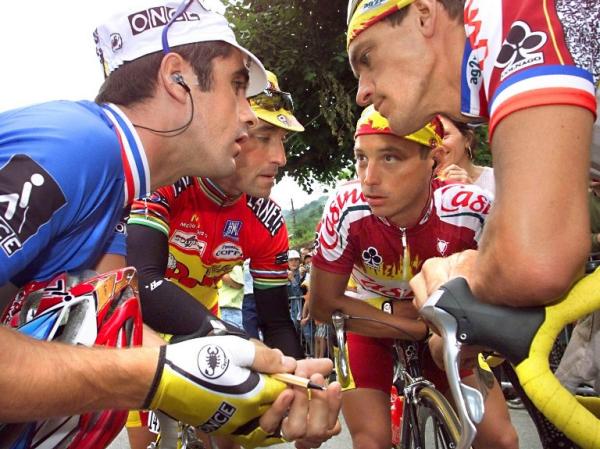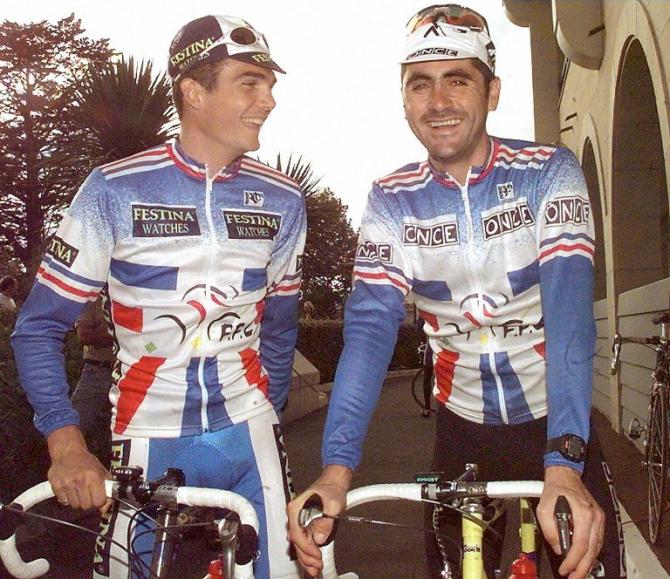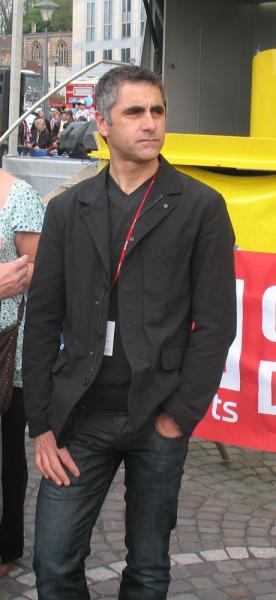Jalabert returns to television punditry at Paris-Nice
Frenchman decries "trial by media"



Laurent Jalabert returns to television and radio punditry at Paris-Nice this weekend for the first time since he stepped down from his roles with France Télévisions and RTL just before last year’s Tour de France.
Jalabert’s decision to excuse himself from his media duties last summer coincided with a report in L’Équipe that the retrospective analysis of one of his urine samples from the 1998 Tour had tested positive for EPO. A French Senate report on doping released in July subsequently confirmed the news, listing Jalabert as one of 18 riders whose samples were found to be positive for EPO.
The tests had been carried out anonymously for research purposes in 2004 by the French Anti-doping Agency (AFLD), but the results were released publicly as part of the French Senate’s anti-doping commission’s inquiry. In a statement released shortly afterwards, Jalabert “acknowledged” that his name had been cited by the French Senate inquiry, but did not confess to doping.
At a French Senate hearing in May, Jalabert said: “I can’t firmly say that I’ve never taken anything illegal," adding: "We were treated, I’ve never said otherwise. Were we doped? I believe we weren’t.”
Speaking to RTL on Friday, Jalabert complained that he had faced “trial by media” before he could defend himself. “The damage is done, it's finished. The suspicions will be there whatever happens.”
“Four days before the start of the [2013] Tour de France, they accused me of doping in 1998 based on tests carried out as an experiment in 2004,” Jalabert continued. “In 1998, I was a cyclist, I was tested, I was negative. In theory the samples were destroyed but here they were kept for experiments and analyses in 2004. We only found out the result in 2013, to my surprise and that of the followers of cycling: why, if not to hit cycling once again four days before the start of the Tour?”
Jalabert claimed that he had requested a counter-analysis of the test from the AFLD, but was told that it was not possible as the sample had been destroyed. The urine sample in question was taken after stage 11 to Plateau de Beille. The A-sample tested negative (a test for EPO was not introduced until 2000) and was destroyed, while the B-sample was stored by the AFLD in Châtenay-Malabry until it was tested for research purposes in 2004.
Get The Leadout Newsletter
The latest race content, interviews, features, reviews and expert buying guides, direct to your inbox!
“It’s been impossible to have the slightest confirmation and make the correlation between the analysis carried out in 2004 and my samples from 1998,” Jalabert said. “I asked for a counter-analysis from the AFLD but they told me that it wasn’t possible because a counter-analysis is only possible in the case of an anti-doping control and that all of the samples had been destroyed in 2006.”
Jacky Durand, who like Jalabert is a television pundit, for Eurosport, was also among the riders on the French Senate commission’s list, but he immediately confessed to doping, saying in July of last year: "I admit my actions. Anyway I think that nobody is fooled. Press, supporters, spectators and racers know the difference between current and traditional practices regarding EPO.”